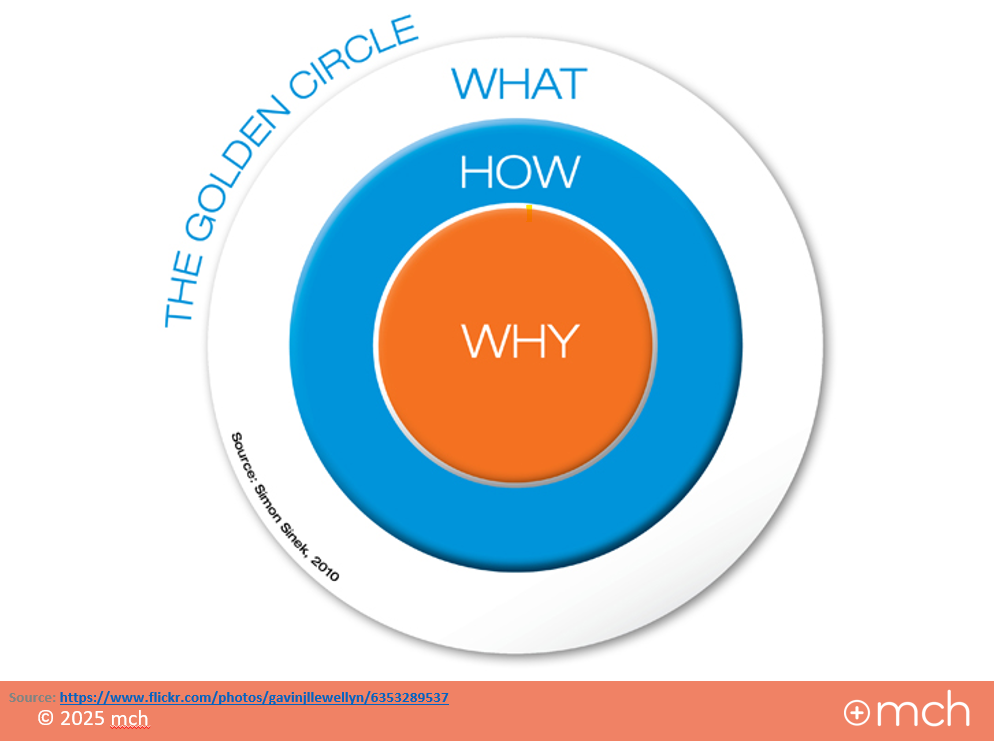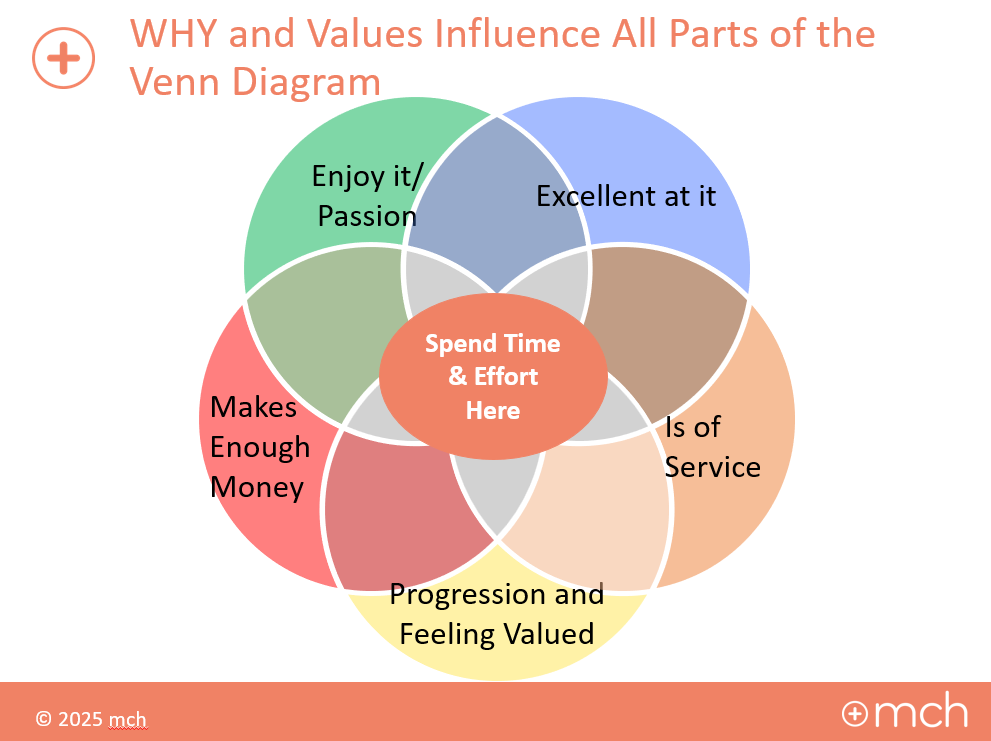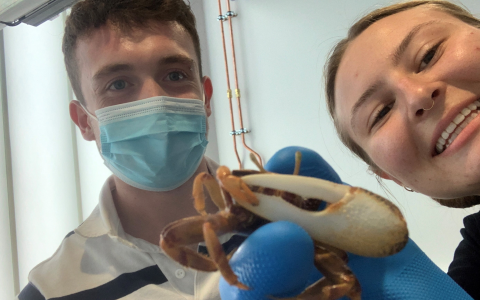
Approaching a career crossroads in light of our values
What brought you into science and academia? What made you stay? Many of us are faced with these questions at some point or other. Maybe when we're at a crossroads moment trying to decide on our next career move. Maybe when we just need to reconnect with our motivation. I had an opportunity to dive deep and approach these questions from a new angle during the career workshop with Mark Hughes from mch positive impact.

A few of us attended the workshop in small groups last month at SWC, and the experience was illuminating in unexpected ways. Mark’s approach to career guidance is not a conventional presentation of career options and of guidelines on how to reach professional goals. “If you're unsure of what you want to do, [those types of workshops] can be frustrating - almost as if they overlook the fact that deciding what path to take can be even more challenging than figuring out how to get there,” said Nicole Vissers (another one of the attendees).
Mark encouraged us to look deeper, beyond practicality. The workshop focuses on three main questions: what is your why? What are your values? And, critically, do your values align with the values of academia? (“yes” also being a very welcome answer here!) To leave (or stay in) academia and consider what other jobs might suit us depends fundamentally on knowing ourselves, understanding what clashes between us and academia, and seeking how to align what we do with our values. Aligning what we do to our why and our values to achieve fulfilment in life resonates with the philosophy of ikigai (‘a reason for being’’ in Japanese): happiness comes from doing what is at the intersection of what you love, what you’re good at, what the world needs, and what you can get paid for (putting a practical twist on an idealist quest).
Mark believes that we each have one set of values in our life. We may not always be fully in tune with them or aware of how they are guiding us, but they define our decisions and choices. Looking back at our life, at key experiences, and at the people that have shaped us, can help us discover the threads of these values. Our why is a statement that defines our purpose (in life?!) by laying out the contribution that we want to make in the world and the impact that we want it to have.

During the workshop, with a set of exercises, Mark guided us to discovering our why and our values - or at least laying out a first draft of them. I have to admit, I was skeptical at first. Skeptical of the idea of a set of constant values in our life. Skeptical that my scattered range of interests and passions could be reduced down to a single why statement. Skeptical that a why statement could be broad enough to encapsulate different facets of my life, yet specific enough to be unique and specific to me.
But, I was pleasantly surprised. At the end of the first session (there were two in total), I was looking at the why statement on the page in front of me and feeling it resonate through previous choices, experiences, moments of joy and fulfillment. I could see how it explained how much I had enjoyed my science journalism internship last summer, as well as what I liked about teaching and teamwork in the curiosity-driven context of science. And yet, I couldn’t help but wonder if it really encapsulated everything that drives me. One statement felt a little tight.
Nevertheless, the veil of skepticism had been lifted and I was curious to see what would be unearthed in the second session as we each defined our values and came to bring them face to face with the values of academia. Finding values was easier than defining my why - they could be as scattered as I wanted, seemingly opposite principles not interfering with each other. ‘Discipline’ and ‘adventurousness’ could happily coexist in the same list.
Confronting them with academia was harder. What are the values of academia? One of the other participants listed “Independence, ownership, originality, collaboration, success, reputation”, another added “perseverance and resilience.”
To help us, Mark had surveyed 14 people (either current or past academics, or employees in academia that were not scientists), and asked them to list academia’s why and values. It was a small, possibly biased sample, but patterns were evident and some unsurprising values made the cut: “collegiality”, “intellectual freedom”, “international collaboration”, “mentorship and education”, “creativity”, “curiosity”, “critical thinking”. It was reassuring to feel some resonance between what we intuited as academic values and what others from all over the world had independently identified.
So, when you’re looking at your values and those of academia side by side - are they aligned? If so, great! You’ve hit the ikigai jackpot and you’re on your way to a fulfilling life. But I think all of us felt a little dissonance, in part because of a tension we saw in some of the survey responses between what we could call the ‘institutional’ or ‘practical’ whys and values of academia, and the ‘idealistic’ and ‘individual’ ones. Nicole noted that “some responses [...] focused on the pressures of the current grant system and the demand to publish”. They indicated that the why of academia was achieving success by securing funding, as one of the other participants observed. There was practicality on one side, idealism on the other. Writing grants and success based on h-indexes on one side, collegiality and intellectual freedom on the other. And yet, the two (maybe necessarily) coexisted. If my values were aligned with the more idealised version of academia, was that enough?
Luckily, for Mark, experiencing dissonance between our personal values and some or all of those of academia didn’t automatically point us to the door. It placed us at a four way career crossroads of bending our values, accepting the dissonance, changing the system, or changing career. Many of us felt relieved by this “reminder that misaligned values don't necessarily have to lead to a career change,” as one of the other participants said “but it is of course okay if they do.”
Which road will each of us take? We didn't walk out of the second session knowing what our next career move would be, but we were better equipped to choose a path that would be most fulfilling.
Banner image by Gil Costa and Joana C Carvalho.


